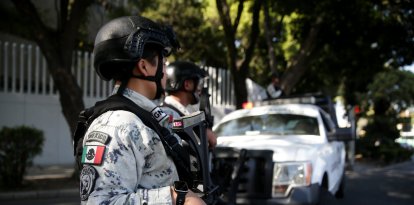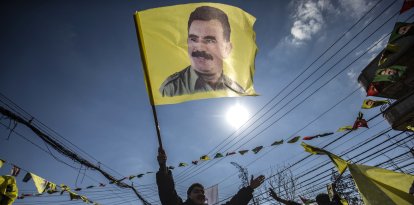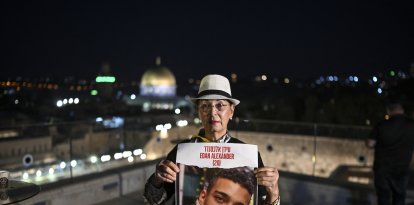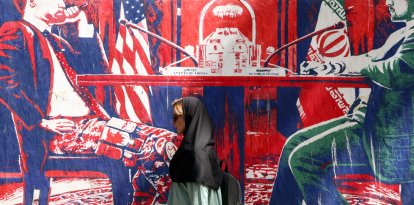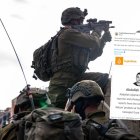BBC journalists resign from their union after being asked to wear clothes with the colors of the Palestinian flag
The reporters expressed outrage at the request made on the occasion of the "Day of Action for Palestine." One journalist said it was "a hostile environment for Jews."

BBC
Journalists from the British Broadcasting Corporation (BBC) announced Thursday that they are canceling its membership in the United Kingdom National Association of Journalists (NUJ) after the union asked its members to wear clothing in the colors of the Palestinian flag or a kufiya, a traditional Arab headscarf often worn by pro-Hamas demonstrators, for Day of Action for Palestine, British-Jewish news portal Jewish News reported.
The NUJ, which is part of the Trade Union Congress (TUC), which groups the majority of workers in England and Wales, said it supports a ceasefire in the Gaza Strip, although it also called for the release of hostages held by Hamas.
Many journalists at the BBC expressed outrage at the union's request, seeing it as a violation of the principle of journalistic objectivity, and therefore urged the association not to meddle in political issues and to distance itself from antisemitism.
'A hostile environment for Jews'
Charlotte Henry, a freelance journalist who resigned from the NUJ, argued that in the union there is "a hostile environment for Jews, and I can no longer be part of that."
Speaking to Jewish News, a staff member at the British Broadcasting Corporation called the union's request "hypocritical and antisemitic." He added: "BBC journalists, who pride themselves on impartiality and who fought to keep their NUJ free of politics, are being encouraged to break the BBC’s editorial guidelines by supporting a political cause."
The Board of Deputies of British Jews, the main grouping representing the Jewish community in the country, lashed out in a statement against both organizations. "Whatever the stated intent, attempts to bring this issue into the workplace in such a fashion will undoubtedly add to the belligerent atmosphere which many Jewish staff have been facing," it said.
Jewish News indicated that more NUJ members are expected to resign from the union.
BBC's anti-Israeli bias
Last September, a report by barrister Trevor Asserson, reviewed by The Telegraph, revealed that the BBC broke its own guidelines of conduct more than 1,500 times in its coverage of the Israel-Hamas war to demonize the Jewish state.
Television, radio and online content, as well as podcasts and social media were all analyzed by a team of 40 researchers over four months, and they found "a deeply troubling pattern of bias." In numbers, 1,533 violations of their own editorial guidelines such as fairness, accuracy and public interest were detected.
The team found that the BBC associated Israel with genocide more than 14 times more than Hamas (283 vs. 19). In addition, it frequently portrayed the Jewish state as militaristic and aggressive, while downplaying the Palestinian group's terrorist attacks.
The bias is partly explained, they claim, by those on the media outlet's staff. Some local journalists and correspondents who showed sympathy for the jihadist group, such as contributor Mayssaa Abdul Khalek, who called for "the death of Israel," or chief correspondent Lyse Doucet, who downplayed the Oct. 7 massacre on several occasions.
The report specifically targets BBC Arabic, the network's Arabic-language station. On 11 occasions, it used reporters who had made public displays of support for terrorism and Hamas. On none did it notify the audience.
In addition to linking Israel with the idea of genocide, the BBC also disproportionately foisted the concept of "war crimes" (127 times for Israel against 30 for Hamas) and "violation of international law" (167 against 27. The trend was only reversed for "crimes against humanity" (15 for Israel versus 22 for Hamas).
The Telegraph highlights the report's finding that the public broadcasting service broke its pledge to describe Hamas as a "proscribed terrorist organization" "whenever possible," a commitment it adopted in response to the wave of criticism for not calling Hamas members "terrorists" after Oct. 7.
However, the researchers found that the terrorist organization was described as such ("proscribed," "designated," or "recognized as...") only 409 out of 12,459 times, just 3.2%.
RECOMMENDATION
